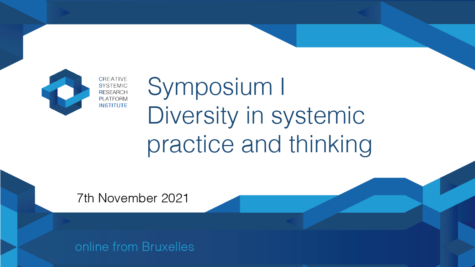Many might sequence systems thinking as (i) systems theory preceding (ii) systems practice. This is not always the case. There are situations where (i) systems practice has preceded (ii) systems theory, or the two advance in a tight learning loop. Jack Ring once pointed out that applied science (engineering) precedes science, because human beings often have systems working before we understand why they work.
Gregory Bateson was consulting on questions associated with schizophrenia and communications, that expanded into a broader theory of double binds. Along the way, he developed an appreciation for techniques amongst alcoholics where the twelve steps of Alcoholics Anonymous were leading to a more correct epistemology.
Before pursuing studies in systems sciences, Gary Metcalf was in practice with an earlier career in family therapy. He explained how techniques and frameworks that he had previously applied became enriched with the deeper understanding of systems thinking, and a history of science associated with the double bind.
This video has been archived on the Internet Archive .
| Video | H.264 MP4 |
| February 21 (1h37m) |
[20220221_ST-ON_Metcalf_SchizophreniaAlcoholismDoubleBinds_WQHD.m4v] (WQHD 1042kbps 818MB) [on the Internet Archive] |
Audio downloadable onto mobile devices was transcoded from the video into MP3.
| Audio | |
| February 21 (1h37m) |
[20220221_ST-ON_Metcalf_SchizophreniaAlcoholismDoubleBinds.mp3] (33.8MB) |
Gary provided some slides to guide the discussion.
Here is the original Systems Thinking Ontario session description.
Is there a pattern where you see a system is stuck? In the 1960s-1970s, anthropologist Gregory Bateson was working with cases of schizophrenia and alcoholism, leading to the development of systems theories on double-binds.… Read more (in a new tab)



